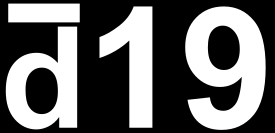Speaker
Description
The search for low-energy cosmic anti-ions may reveal exotic production processes---such as dark-matter annihilation---because of the low production rate of such ions through inelastic scattering of cosmic-ray protons with the interstellar medium. However, a precise prediction of the expected antiparticle fluxes is challenging, since their production cross sections are not well known; they are strongly deflected by the magnetic fields of the Sun and Earth; and can interact with interstellar matter. These effects significantly modify the fluxes and spectra we can observe near Earth.
We present our studies of the spatial and temporal variations of antiproton and antideuteron fluxes using different propagation and reaction models, including estimations of expected spectra for different space-based experiments. To better understand the annihilation processes, we investigate the cross sections implemented in different versions of the GEANT simulation toolkit. In this context, we study the feasibility of a measurement of the annihilation cross sections of antiprotons and antideuterons with the ALICE detector at the CERN’s Large Hadron Collider---either by measuring the antiparticle-to-particle ratios or by directly detecting annihilation vertices within the detector.

